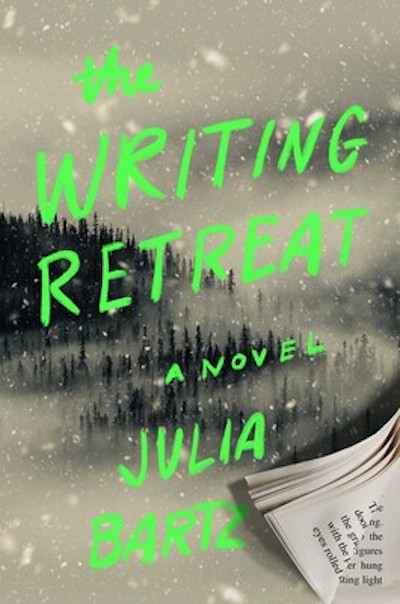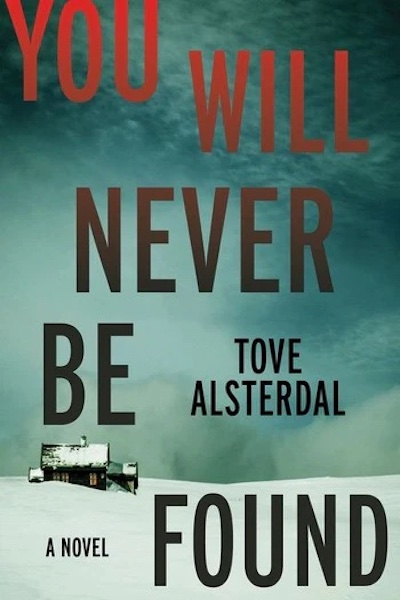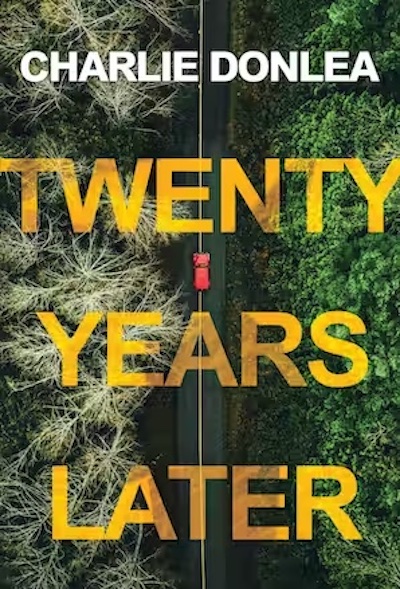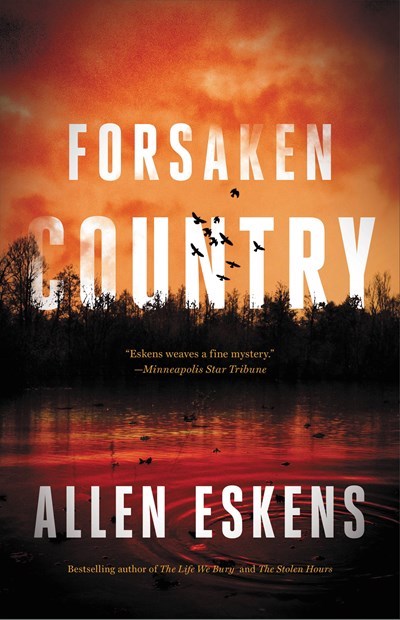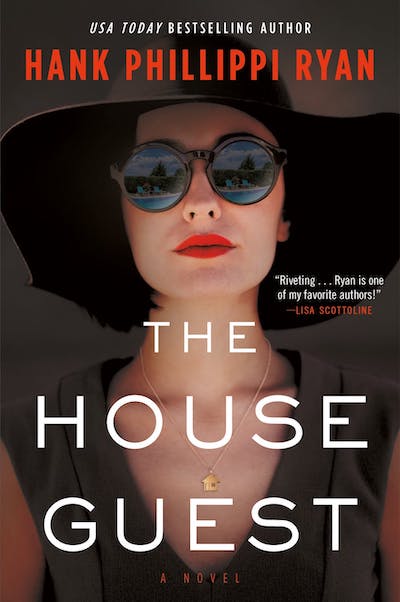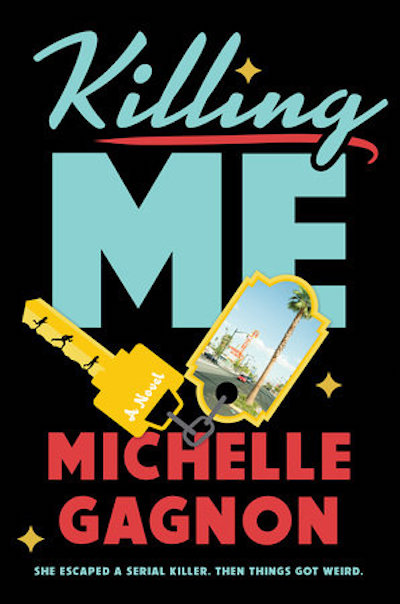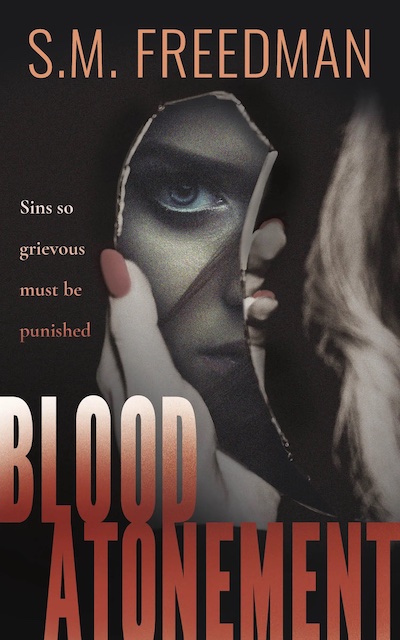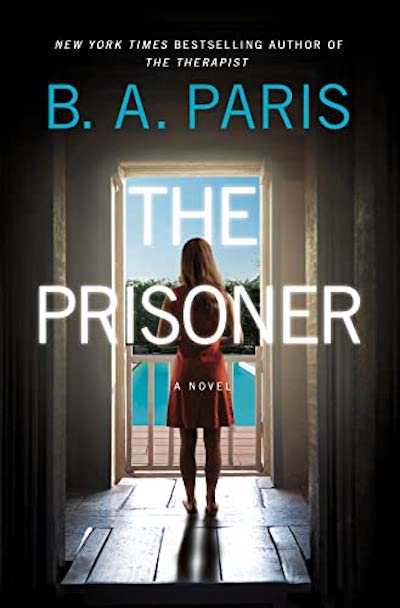Expecting a cozy retreat the likes of MacDowell or Yaddo, with the residents being slowly and genteelly knocked off? Then look elsewhere. This intimate retreat is the brain child of the renowned feminist horror writer Roza Vallo, who invites a handful of women under 30 to a month at her Victorian mansion in upstate New York. The women are all fierce Roza devotees, especially our narrator, Alex, who’s hoping the experience will help her push past a yearlong writers’ block. No sooner do they all gather for their first dinner than Roza starts revealing her crazy cards: the cohort will have to turn in 12 pages a day; read each other’s work; participate in group workshops; meet regularly with herself, Roza; and complete a novel by the end of the month. Whew! But best of all, at month’s end, a winner will receive a publishing contract for seven figures. This largesse, combined with Roza’s cruel badgering of the participants, ups the anxiety and tension in the group. But if only it stopped there. Slowly the cohort begins to come unhinged, false identities are discovered, one woman disappears in the midst of a horrendous snow storm, and everything the women hold to be true about Roza turns out to be false. This book is one hell of a wild romp.
Thrillers
Classic Nordic noir: a bleak, northern Swedish town; a serial killer whose victims are each murdered in the same, horrifying way; alcohol is always the drink of choice; a mother’s mind is being stolen by dementia. In Malmberget, above the Arctic Circle, houses are being relocated by a mining company—or else they’ll fall into a huge sinkhole. But as they review the empty homes, workers discover a man locked in one of the basements, barely alive. Over 600 miles south, Detective Eira Sjodin is investigating the vanishing of a middle-aged man, a much-beloved actor, whose disappearance is inexplicable. Slowly Eira is able to connect the dots, and while the man’s identity becomes clear, motive does not. Like Tana French’s work, this novel is a richly character-driven procedural, and Alsterdal digs deeply into the backgrounds of several of the detectives—examining their lives and loves. Eira’s spare time is consumed with relocating her mother to a nursing home for memory loss while recognizing that her feelings for GG, her boss, run deeper than she would like to acknowledge. But when GG goes missing, it is no holds barred as the Detective sets off on her riskiest move yet. This novel is seriously dark but at the same time absolutely compelling. While the book works as a stand-alone, readers will appreciate reading the initial title in the series, We Know You Remember, first.
A double narrative, one in the present day, the other in 1974, both set in Villa Aestas on the outskirts of Orvieto, Italy. Emily, a 30-something writer of cozy mysteries, narrates the present. She’s going through a tough time: a messy divorce, writer’s block, and recovery from an awful, but undiagnosed, illness. So when Chess, her best friend since childhood, invites her to come along to the Italian villa she’s rented for six weeks, it’s a no brainer. Chess has become rich as a bestselling author of wellness/relationship books geared toward women and can easily afford an Italian villa fantasy. Villa Aestas is indeed charming, but it also has a dubious reputation, and Emily can’t help but investigate its past. It turns out that a famous rock star spent a summer there with several friends, a stay that ended in the murder of one of the men in the group. The two women in their midst fared far better; one went on to publish a horror novel that ended up a classic, while the other released a best selling album. Emily begins to recreate the narrative of that summer—through the novel, song lyrics, and documents she discovers in the villa—and becomes so obsessed that she begins a book about the summer of 1974. Chess meanwhile develops her own fascination with the murder, urging Emily to let her coauthor the book. As sinister details from the past emerge, equally disturbing revelations about the present come to light, and the two narratives begin to overlap. For fans of Lucy Foley.
Crimes and investigators that could not be more different collide in Donlea’s immersive thriller. The first crime is the obscure possible suicide, possible murder of a man who’s found hanging off his balcony in the Catskills area of upstate New York on July 15, 2001, and the other the murder of thousands in downtown New York City 27 days later. The investigators are Avery Mason, a glamorous, up-and-coming TV journalist and Walt Jenkins, a burned-out, former FBI agent who’s now living in Jamaica and steadily becoming an expert on rum. Fate brings the crimes and sleuths together when, twenty years later, a stunned medical examiner finds a match to a body part from the wreckage of the World Trade Center. It’s from a woman who was under investigation for the killing of the hanged man, and Walt, who investigated that hanging in 2001, and Avery, who’s breaking the story of the 9/11 victim and hoping to prove the woman’s innocence, are pushed together (not exactly against their will, it turns out) to get to the bottom of the decades-old case. There are many twists here, both in the backgrounds of the characters and in the secrets that are revealed. The tragedy of 9/11 is not taken lightly, rather it forms a fittingly sober backdrop to the torment faced by the characters in the past and today. For a readalike, try a series character who on the surface is nothing like Walt Jenkins, but who has the same kind of rock-steady kindness and intelligence: Kate Atkinson’s Jackson Brodie
Living a remote, punishing existence—he even asks to have the power to his cabin switched off in the Minnesota winter—former homicide detective Max Rupert has run away from his job more than retired from it. All readers know for most of the book is that he shoved a man through a hole in a frozen lake and is living with the aftermath of that choice. But why he did it, and whether he can allow himself to rejoin society, is a mystery. On a visit to town he runs into Lyle Voight, the former sheriff who’s been voted out of the job in favor of a corrupt newbie, and the man’s daughter, Sandy, and grandson, Pip. Seeing a family gives Max an unfamiliar and slightly disturbing feeling—happiness—and he’s helplessly drawn to jump in when, shortly after, Sandy and Pip vanish suddenly from their home. Puzzlingly, all signs point toward a planned absence. Next, we meet the sinister—and I mean sinister—duo behind the disappearance, and soon the chase is on, helped by Max’s former partner, Niki Vang. This thriller does a remarkable job of contrasting evil and love throughout, in the characters’ actions and dialog as well as in Max’s inner struggle between the positive force that keeps him going and the weight of self-loathing that holds him back. The three-dimensional portrayal of Niki, a wise-cracking and kind Vietnamese American detective and love interest, is a bonus. This is one to get lost in.
Alyssa, née Alice, Macallen, has changed her name and subjugated everything else about herself to please her unpleasable husband, Bill, who has left with no explanation. All Alyssa knows for sure is that he’s taking his wealth with him and she has no job and no prenup, which he insisted was unnecessary because he was going to love her forev—you know the rest. Anyway, Bill’s gone and Alyssa’s sitting in a hotel bar nursing her sorrows when she meets a woman who may be even worse off. Bree Lorrance is living at the hotel after getting away from an abusive boyfriend. She moves into Alyssa’s guest house, and soon readers and Alyssa are wondering how things have taken such a fast turn. Far from lonely and terrifying, Alyssa’s days are now taken up with helping her friend, who encounters a new tragedy that sets the women, and another player who becomes involved and moves in, on an exciting trajectory. We’re left wondering whom Alyssa can trust in her new life, if anyone. Are some of these strange new people part of Bill’s team or out to get her for some other reason? Or maybe Alyssa is making everything up and we’ve got an unreliable narrator on our hands…it’s impossible to know until Ryan brings all to a satisfying ending that readers will never see coming. The author’s fans will snap this up; it’s also a must for Liane Moriarty’s readers.
This novel should come with a warning label: start this book at your own risk. It’s that suspenseful, that seductive. We meet our hero, Morgan Faraday, running through the NYC subway to escape from Sebastian, her ex-fiancé, and two armed rent-a-cops. How does love go so wrong? We then jump to ten months ago for the backstory that answers this question. Morgan—who identifies as Black, she has North African heritage via Moorish Spain, but is often assumed to be white—escaped from a poor Pennsylvania town for NYC and art school. A textile artist, she’s struggling when she meets billionaire Sebastian Reid, the CEO of one of the world’s largest energy companies. The answer to all of Morgan’s problems? Perhaps, but sleeping with a man you don’t love and barely find attractive is still work, and even with best friend Dashawna’s how-to-marry-a-millionaire advice, Morgan remains conflicted. Marrying white men for financial security, while necessary, was never a good decision for the women in her family. Worse, once she moves in with Sebastian, she discovers that his claim that his company is going green is just a façade, and he’s still responsible for several ecological disasters, with communities of color the most adversely affected. Encouraged by an oh-so-hunky environmental activist, Morgan begins to spy on Sebastian, recording his calls and filming his meetings. It’s incredibly anxiety-producing, and readers will be madly racing to the book’s surprising conclusion. Social commentary, feminism, racism, family history, courtroom drama, plenty of suspense, and a very hot love affair all come together for one powerful read.
Ever feel like you’ve lost your reading mojo? Spending too much time consuming mediocre series on Netflix? Then this fun, female-driven narrative featuring a grifter/psych student, a terrifying serial killer, a cool and elegant femme fatale, and a handful of Las Vegas ladies is sure to get you back into the reading groove. A serial killer is stalking Amber’s college campus, and despite all her street smarts he manages to kidnap her, dragging her off to his lair. Just when things start to get serious, Amber is liberated by this cool and aloof woman who promptly disappears. But when the cops, and then the FBI, show up, Amber gets jittery—she and law enforcement don’t mix—so she heads out of town, randomly picking Vegas. It would be foolhardy to try to summarize this story; it’s got more twists and turns than the Tour de France. Let’s just say that Amber’s voice—witty with a side of snark—is just everything, the dialogue is pumping, and the characters are, strangely enough, completely credible. And how refreshing is it to read a thriller without any male leads? Turns out you don’t miss them at all. An absolute delight from beginning to end.
Locked-room mysteries and thrillers are booming, but this one has a twist. In the 1990s, young Grace DeRoche’s family lives in a Canadian branch of the FLDS, the Fundamentalist Church of Jesus Christ of Latter-Day Saints. Talk about a locked room. Children in the cult headed by Warren Jeffs, who in real life has only left the FBI’s Most-Wanted list because he’s serving a life sentence for child sexual assault, live with their fathers and the men’s multiple wives in Brigham, a secretive, abusive compound. They spend their days praying, in fear of outside-world apostates, are illiterate, and are subject to harsh “corrections.” Girls are married young to much older men. After the police come and “Brigham’s Ten”—Grace and nine other children—escape, the rest of the compound dies by mass suicide. In the years that follow, Grace remains in the locked room of her mind: she has dissociative identity disorder, with multiple personas taking over when she’s stressed. Stress comes in the deaths of members of the Ten, and Detective Beau Brunelli must protect Grace, a challenge when the woman doesn’t believe she needs protection and is too frightened and confused to accept help. Freedman could have made this sensationalist, but it’s a thought-provoking read, providing a look at life after a cult and portraying the survivors as real people, warts and all. The shocking ending here is a reward of its own, and getting there is a journey through incredible details of life inside Warren Jeffs’ world and inside the mind of a troubled woman. While you wait, try the Netflix documentary Keep Sweet: Pray and Obey, which covers the FLDS and is also absorbing.
In Paris’s latest thriller, a London woman’s trip from rags to riches and back again is a tense fight against a wealthy man who can’t be denied his out-of-control wishes. The tale alternates between two timelines. In the present, readers find Amelie Lamont kidnapped and trapped one floor above her husband, Ned Hawthorpe, who’s also kidnapped and whose rich father doesn’t seem too interested in getting him back. While they wait, Ned makes clear that he’s his stone-cold father’s son, telling the kidnappers that they can go ahead and kill Amelie as it will make his father cough up the money. The past timeline, which takes place several years earlier in the 1990s, shows how Amelie got into this nightmare, starting when her widowed father died and left her homeless. She finds her way to a job at a magazine, with Ned the boss. Desperate for money for college, she makes a startling deal with the rich man, one she immediately regrets. Both Amelie’s time in her dark prison and the lead up to it are psychologically reminiscent of Emma Donoghue’s Room, portraying the intense inner machinations of a woman pushed to the brink. But this web of fear and lies is much more complex, satisfyingly so, than Room, involving many more characters, intricate plotting, and layers of subterfuge. Paris’s fans won’t be disappointed and readers new to the author will be hooked.

